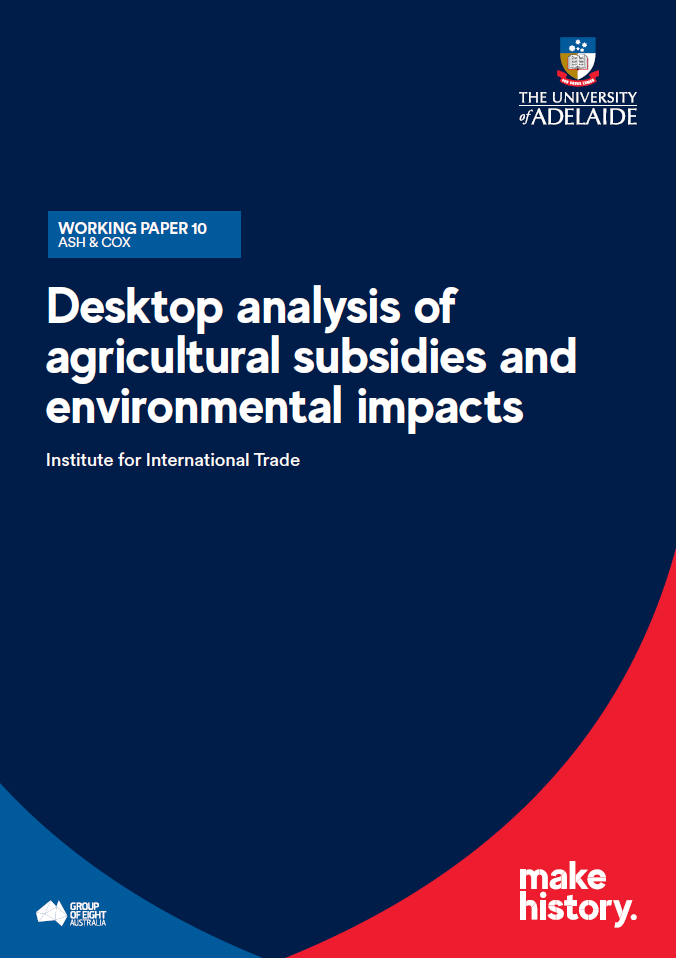Desktop Analysis of Agricultural Subsidies and Environmental Impacts
Working Paper 10
- Publication
- Citation
Ash, Ken and Anthony Cox 2022: Desktop analysis of agricultural subsidies and environmental impacts. Working paper 10. Adelaide: The University of Adelaide.
Based on the available literature, this report explores the impacts of production and trade-distorting domestic support in agriculture on climate (i.e., greenhouse gas emissions) and the environment (i.e., water, biodiversity, and land degradation).
The World Trade Organization (WTO) and the Organisation for Economic Cooperation and Development (OECD) already provide a great deal of valuable information on domestic support in agriculture, though for different purposes and using different methodologies. Yet the essential story that emerges is the same. In nominal terms, domestic support for agriculture is high, is increasing, is highly concentrated in just a handful of countries, and is further concentrated on relatively few commodities. Moreover, much of this support relies on policy instruments that distort production and trade and are environmentally harmful. Today, there is little constraint on governments providing trade-distorting and environmentally harmful support to agriculture. Without changes to multilateral rules, there will be even less constraint in the future.
This report argues that an innovative approach to addressing the domestic support pillar at the WTO is within reach and would encompass two elements: (1) improving awareness and understanding of available information and analysis while filling strategically important knowledge gaps; and (2) building a coalition of stakeholders in support of an evidence-based discourse and a modern package of agriculture policies that would work better for people and the planet. There is arguably more information already available on agricultural support and its production, trade, climate, and other environmental impacts than for any other sector. Successful policy reform in a sector as sensitive as agriculture requires more than just good data; it requires coalition building. A sustained evidence-based networking initiative that incorporates active public engagement and global coalition building should be developed on a priority basis.
The report was prepared in 2022 by Anthony Cox and Ken Ash at the Institute for International Trade at the University of Adelaide for the Australian Department of Foreign Affairs and Trade.





